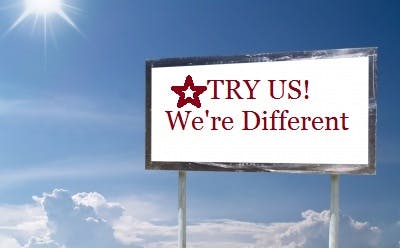Note: Matt Lowney will be speaking at the upcoming Fordyce Forum 2013. His session So You Want to Sell to Me? Here’s How to Do It will offer firm owners and leaders a look at what it takes to get a client’s business and how best to connect with new clients in today’s highly competitive world. Register now at Fordyce Forum 2013.
“How do I win your business?” It seems like a simple enough request, but ultimately it’s a process that most recruiting agencies do not handle well.
In June I will be speaking on this very topic at the Fordyce Forum in Dallas – winning and keeping business from the perspective of the client. As someone who has utilized every variation of third party recruiter, I know they can add tremendous value, but there are three key areas that agencies should focus on improving to make the vendor-client relationship less tenuous. Let me be clear, this is not a beat-up-the-vendor topic. I want to focus on raising the bar across the board for all recruiting professionals.
Sales Process
In speaking with several corporate recruiting directors, the story is pretty similar. They hate getting inundated with sales calls from a litany of firms. It’s not uncommon to receive 10 sales calls in a day. And like everyone else, I hate being sold. It’s reached a point that I don’t take calls from cold-calling recruiters. Additionally, their sales pitches sound incredibly similar. I’ve written on this topic previously in my article ‘What Drives Me Nuts About Staffing Agencies’, so I won’t re-hash too much.
Clearly, most companies rely on third party firms to support their staffing needs. However, most staffing firms don’t understand how a user-friendly sales process works. At this point I will only take sales calls from recruiting firms that have been referred to me by a trusted professional in my network. I may not use them right away, but they will likely be on the short list when a hard-to-fill requisition opens up.
This leads to my second point: Reputation ,anagement.
Professionalism and Reputation Management
In short, reputation matters. There aren’t many who would disagree. In an industry with such a low barrier to entry and so many competitors, reputation management matters.
Do you know how potential clients view you? Unfortunately, most recruiting firms view themselves more positively than the market. If you’ve been in business more than a year, then most likely you already have a reputation — good or bad. At minimum, I like to see my vendors active in local professional organizations and giving back to the community they serve. I like to know they are truly part of their client’s world, and not simply there to make money.
From my perspective, I think a lot of recruiting firms view their business simply as a numbers game. They hire a ton of new graduates, give them limited training, have them a make a ton of cold calls, and generally annoy recruiting directors and others within my organization. Using this business model makes it tremendously difficult to maintain a positive reputation. It lets me know they aren’t an involved, professional member of the community.
Data
My last point really reinforces my previous two. Agencies that build their business through professional referrals and positive reputation management can also show their impact on clients through data.
I like to hear what data agencies collect on themselves or get from other clients about their performance.:
- What’s your placement rate?
- What’s your consultant retention rate?
- How do you measure client satisfactions?
- How do you measure up financially with competitor bill rates?
You get the idea. I understand that it’s hard to lead with data when pursuing a new client, however having real data reinforces your professionalism in the market. It also lets me know that you can actually prove you are better than your competitors, and not simply saying you are.
In short, I think most recruiting firms truly want to be partners with their clients. I truly do. However they struggle making that desire real and measurable when they implement their business plans in market. I would also concede that some clients simply want to treat their staffing firms simply as vendors who provide labor. So some clients bear responsibility when they create an environment of unnecessary adversarial relationships between themselves and recruiting firms.
